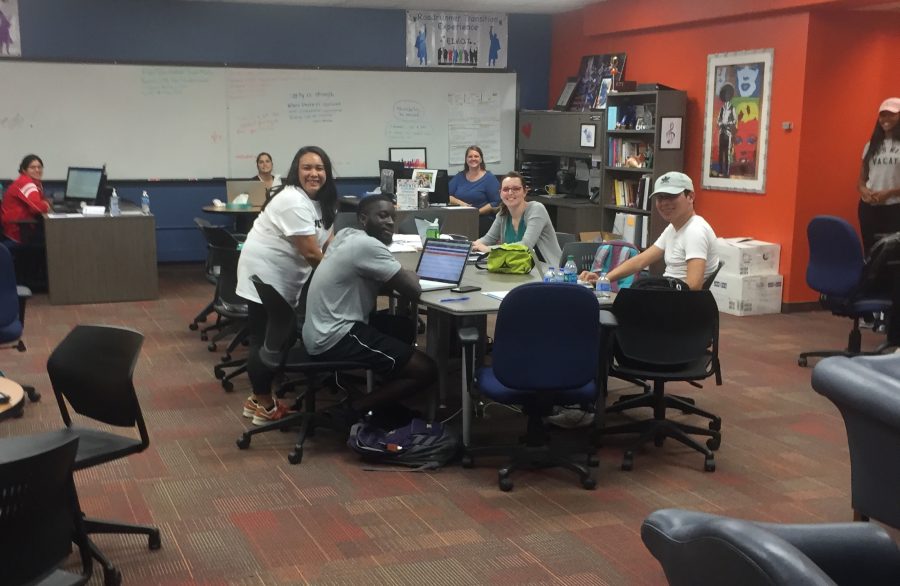Support for nontraditional and transfer students
Since January 2016, the Roadrunner Transition Experience (RTE) has been helping nontraditional and transfer students adjust to the culture shock of attending a four-year university, by providing these students with various on-campus resources and peer mentors.
A long-term goal of the RTE, as stated by program manager Sarah Price, is to “increase the retention and persistence rates of nontraditional students, and the graduation rates of them as well.”
Nontraditional and transfer students have high withdrawal rates and tend to take semesters off. Often times these students are not informed of the resources or services provided to them and have difficulty navigating through UTSA without guidance. The RTE helps resolve this problem by serving as the medium between the students and their resources.
The resources available to nontraditional and transfer students include everything except the First-Year Experience Program, which is provided to incoming freshmen. Nontraditional and transfer students are sometimes unaware that organizations such as the Honors College and Student Ambassadors are available to them. Additionally, nontraditional and transfer students are provided with workshops, peer mentors and social events through the RTE.
The peer mentors of the RTE are similar to peer mentors for freshmen. However, meeting with a RTE mentor is not mandatory; it is up to the nontraditional and transfer student to seek mentorship. Some of the peer mentors in the RTE also transferred to UTSA and can relate to the experiences of those they mentor. Mailaine Patton, a senior biology major and RTE peer mentor, transferred to UTSA before this program was implemented and is eager to help the students she mentors.
“We have been where you have been—let us help you,” Patton said.
The workshops help nontraditional and transfer students identify their goals, process their strengths, and show them that they should not feel intimidated or inferior as non-traditional students.
Social events hosted by the RTE include “Mentor Mondays,” a YouTube livestream broadcast where mentors discuss topics helpful to transfer and non-traditional students every other week, and “Social Sips,” which provides an opportunity for students to socialize with peers and mentors while being informed of resources and events at UTSA.
Ultimately, the RTE wants nontraditional and transfer students to take advantage of all of the available resources while they attend UTSA.
Carla Tripis, a junior anthropology major and transfer student, has taken advantage of the RTE.
“I love my mentor,” she said. “She has the same major as me and is super informative. She sends me information about organizations that I would be interested in and is really supportive.”
For more information about the RTE visit the website, pivot.utsa.edu/rte, call 210-458-7469, send an email to pivot.rte@utsa.edu or stop by the office in room 3.02.04 in the Flawn Building.







